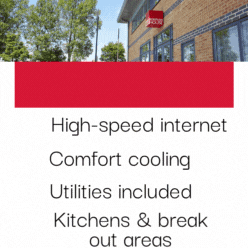In case you missed it see what’s in this section
Let's Talk
Business West on Honda Comment at SMMT Summit
At the SMMT Summit in London today (Wednesday 20 June), Ian Howells, Senior Vice President for Honda Europe stated that the UK government remaining in the Customs Union could provide significant benefits to the ongoing success of the UK automotive sector. Business West is the main business leadership organisation covering Swindon, Bristol, Gloucestershire and Wiltshire.
Ian Larrard, Business West Director in Swindon commented:
“Honda is one of Swindon’s largest employers and has a long and successful history within the town. Swindon is the home of Honda’s only UK plant, so these comments from Honda are of direct relevance to the town and its economy. It is extremely rare for Japanese companies to make public statements concerning a foreign government, so we should take this speech seriously. It is an indication of the issue’s importance to the firm and of their underlying concern about the current direction of travel of Brexit negotiations.
“The request for the UK to remain in the Customs Union reflects a worry that leaving it will create additional paperwork and compliance issues that would hurt Honda’s competitiveness and ability to operate. Automotive manufacturing depends on ‘just in time’ supply chains which stretch across the whole of the EU. If done badly, leaving the Customs Union will mean having to fill in forms for every part that criss-crosses the UK border. This is likely to make it much more burdensome to operate and lead to a sharp increase in unproductive administrative costs.
“Honda’s concern about leaving the Customs Union is matched by the concerns of hundreds of small and medium sized exporters across the region. When we surveyed our business members, they identified “the ability to trade without additional paperwork” as their number one priority for Brexit negotiations. We also found that 51% viewed the prospect of leaving the customs union as ‘negative’ or ‘very negative’; while only 14% viewed it as ‘positive’ or ‘very positive’. For many smaller firms, the additional forms required to export to Europe after Brexit could prove a significant problem for their competitiveness and export performance.
“It also reflects a broader concern within the business community that government simply hasn’t been listening – and does not understand the difficulties that many firms will have in adapting. For example, we have yet to see a robust cost-benefit analysis by government of the impact of leaving the Customs Union on the economy. It is now time for the government to shift its negotiating position and also to start to address the practical obstacles that many firms will face post Brexit.”
Case studies with quotes of firms concerned about additional customs paperwork - please contact Rupert Callingham at Business West on 07715 539 391 for company names and details:
“We must avoid at all costs customs formalities or additional bureaucracy for imports and particularly exports. We supply just-in-time into Europe and placing delays and administration / bureaucratic overheads into the export process will kill our business.” (Valve manufacturer, Bristol)
“Any additional customs work will increase freight costs and push our prices up. We already face very strong pressure from low cost Asian suppliers and these cost increases coupled with potential tariffs are likely to make our products uncompetitive. We are preparing special plans on how to relocate the business if the outcome of the Brexit negotiations does not result in a tariff and customs paperwork-free business environment.” (Manufacturer, South Gloucestershire)
“We are a company which thrives on reacting quickly to customers’ requirements. Our business is in the marine industry where we supply telephone exchanges and spares. Sometimes a vessel is in port for a few hours and rapid delivery without customs delays in imperative.” (Telecoms supplier, Gloucestershire)
“Extra costs added by carriers in Europe for clearing documentation outside the customs union would make supplying EU customers uncompetitive and we would lose most of our business.” (Stationery retailer, Bath)
“The prospect of an increased burden of paperwork and having duty charged on our goods would make us far less competitive in the EU.” (Flavourings manufacturer, Bristol)
“At present movement of goods within Europe, both to us and from us, has been very straightforward. Whilst we are familiar with handling customs e.g.. into and out of the US and into the UK, having something similar into the EU area or each individual country will add complications and potentially delays to our work.” (Veterinary researchers, Gloucestershire)
“We couldn’t operate with tariffs or increased time lags due to customs – we wouldn’t be able to compete with our EU competitors. The introduction of increased costs and slower delivery times would force us to move a considerable portion of the business to Germany.” (Sports retailer, Bristol)
Weather in Swindon
Listings





















